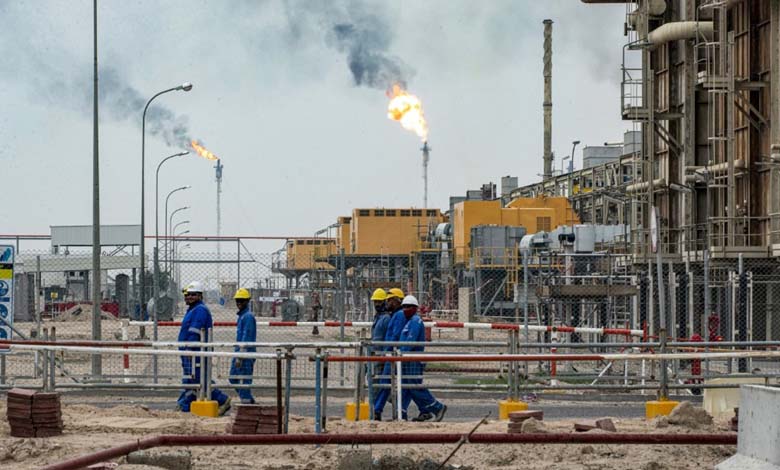Washington Maintains Oil Partnership with Erbil Despite Disputes with Baghdad

Washington’s stance reflects a prioritization of economic interests and lucrative deals over local laws or partner states’ political positions.
The United States’ support for contracts signed by American energy companies with the Kurdistan Region—despite a lawsuit filed by the Iraqi government—reveals a political and economic strategy that may escalate tensions between Baghdad and Washington. The U.S. alignment with Erbil contradicts the Iraqi central government’s demands, which view these contracts as violations of sovereignty and constitutional authority. This deepens the rift in bilateral relations, particularly amid an already strained context between both parties.
-
Washington Wields the Maximum Pressure Card against Baghdad
-
Washington Foils Iranian Plot to Assassinate Officials in Retaliation for Soleimani’s Killing
The U.S. position can be traced back to the Trump administration’s approach, which emphasized economic gains and profitable agreements over legal norms or political considerations of partner nations. This strategy continues to influence U.S. policy toward Iraq, especially amid ongoing disputes over sensitive issues such as the presence of Iranian-backed militias. In this context, the energy file becomes an additional pressure point.
In contrast, Erbil is likely to rely on U.S. backing to proceed with these contracts, largely ignoring Baghdad’s objections. This could prompt the central government to take further legal or diplomatic action. However, negotiations and dialogue—either through U.S. mediation or regional channels—remain possible pathways toward resolving the dispute and maintaining both constitutional balance and stable relations between the central government and the Kurdistan Region, as well as between Baghdad and Washington.
-
Iraqi Move to Release Frozen Iranian Funds in Baghdad
-
An Iraqi-Turkish agreement to resume re-exporting Kurdish oil through the Ceyhan Port
During a recent visit to Washington, Kurdistan Prime Minister Masrour Barzani announced the signing of two agreements estimated to be worth tens of billions of dollars. During the trip, he met with U.S. Secretary of State Marco Rubio.
Rubio praised the two deals with American companies, according to State Department spokesperson Tammy Bruce, who briefed reporters.
“We encourage Baghdad and Erbil to work together to expand local gas production as quickly as possible. This kind of economic partnership benefits both the American and Iraqi peoples and helps Iraq move toward energy independence,” she stated.
-
Iraq foils attacks targeting markets in Kirkuk during Eid al-Fitr
-
Iraq wins an international arbitration case against Turkey over oil exports
She added, “We also believe that U.S. and Iraqi interests are best served by a strong and resilient Kurdistan Region within a sovereign, federal, and prosperous Iraq.”
“We naturally look forward to continuing such deals,” she said. “We expect these types of contracts to flourish and hope they will be facilitated.”
Meanwhile, the Iraqi government filed a lawsuit against the Kurdistan Regional Government (KRG) for signing contracts with two American oil companies without federal approval. Two officials confirmed the legal action to AFP on Tuesday, highlighting the ongoing tensions over oil and gas resource management in the region.
-
Official : ISIS blows up oil wells in Iraq to kill police
-
Baghdad: Funeral March marks the anniversary of Soleimani’s killing
Iraq’s Ministry of Oil declared the contracts void, citing the Iraqi Constitution and rulings by the Federal Supreme Court, emphasizing that all resource exploitation must go through the federal government.
The lawsuit demands that the KRG annul its contracts with HKN Energy and WesternZagros.
The deal with WesternZagros covers the Topkhana block, which, along with the neighboring Kurdamir block, is believed to contain up to 5 trillion standard cubic feet of natural gas and 900 million barrels of crude oil, generating an estimated $70 billion in revenue over the life of the project.
The partnership with HKN Energy focuses on the Miran gas field, estimated to hold 8 trillion standard cubic feet of natural gas, with a long-term value of $40 billion.












